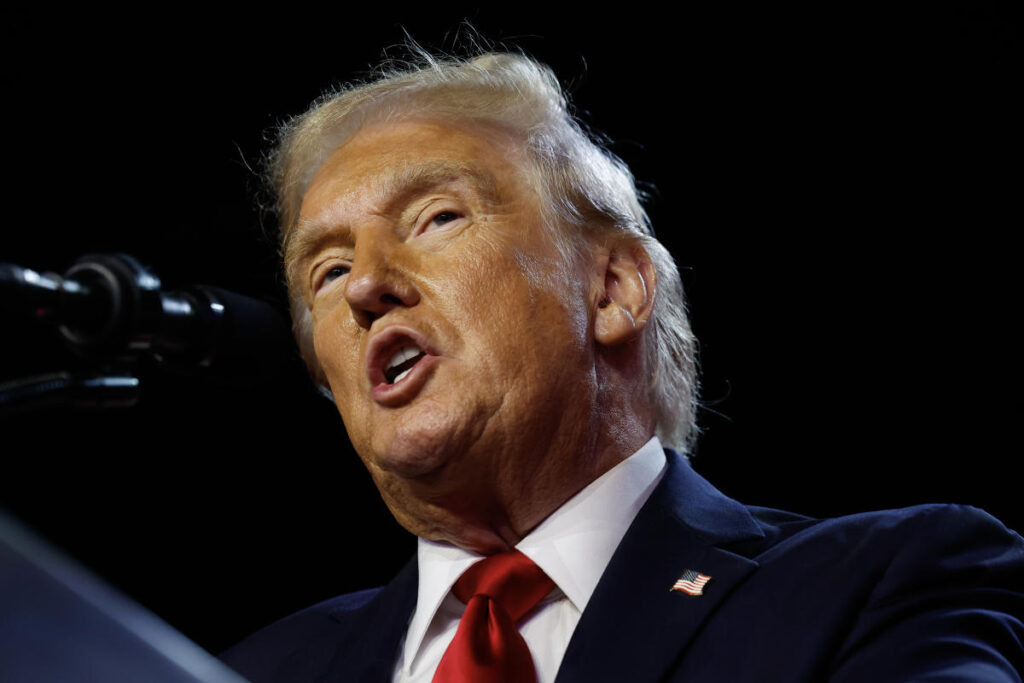The recent charges announced by the Justice Department regarding a plot to assassinate former President Donald Trump have drawn significant attention, especially due to their implications involving foreign governmental influence and domestic security. Three men have been charged with conspiring to kill Trump, with an Iranian national, Farhad Shakeri, allegedly acting on behalf of the Iranian government’s Islamic Revolutionary Guard Corps (IRGC). The complaint filed in federal court in Manhattan outlines that Shakeri was tasked in September with developing a plan to surveil and potentially execute Trump before the upcoming 2024 election. The IRGC official guiding him indicated that should he be unable to formulate such a plan within a week, they would delay their assassination strategy until after the election, assuming Trump would lose and consequently be easier to eliminate.
The indictment highlights a broader context, indicating that Iran is actively seeking revenge for the assassination of Qassem Soleimani, the former commander of the Quds Force, who was killed in a U.S. drone strike in January 2020. The charges are characterized as an example of Iran’s ongoing efforts to target American citizens, a move that underscores the supposed ongoing animosity and threats directed at the U.S. from Tehran. Shakeri’s refusal to proceed with the IRGC’s request within the stipulated time also suggests an internal conflict regarding the execution of the plot and the Iranian government’s volatile assessment of the political landscape in the United States.
In addition to Shakeri, two individuals based in New York—Carlisle Rivera and Jonathan Loadholt—have also been implicated in the broader murder-for-hire scheme. The trio is accused of plotting to kill Masih Alinejad, an outspoken Iranian-American journalist critical of the Iranian regime. Alinejad has faced multiple threats previously, including prior attempts on her life orchestrated by the Iranian government, illustrating the severity of the ongoing risks for dissidents abroad. The details within the complaint reveal the extent of the surveillance that Rivera and Loadholt undertook against Alinejad, including covert observations outside her residence, indicating that these plots are not only theoretical but backed by concrete actions aimed at facilitating violence against targeted individuals.
The legal repercussions for those involved range widely, as all three men face charges that include murder-for-hire, conspiracy to commit murder-for-hire, and money laundering, with potential prison sentences ranging from ten to twenty years. In addition to these charges, Shakeri has faced accusations concerning his alleged material support for a foreign terrorist organization and violations of U.S. economic sanctions against Iran. Shakeri, believed to be in Tehran, has not yet been apprehended, while Rivera and Loadholt were introduced in court and are currently awaiting trial, reflecting the active legal process underway in response to the alleged plot.
Officials from the Justice Department and the FBI have emphasized the seriousness of these charges, equating the actions of the Iranian regime with a direct threat to U.S. national security. Attorney General Merrick Garland asserted that few entities represent as severe a danger to the United States as Iran, and FBI Director Christopher Wray supported this view by detailing the IRGC’s collaboration with criminal networks to target American citizens. Their statements underscore the importance of disrupting such assassination schemes and regularizing the assertion of enforcement of domestic law against international threats.
The charges against these men not only highlight the immediate threat posed to individuals like Trump and Alinejad but also reflect a larger geopolitical turmoil and the ongoing struggle faced by dissidents who challenge authoritarian regimes. The implications of this case extend beyond the courtroom, influencing public discourse around national security and foreign relations, particularly as they relate to Iranian-American dynamics and the ever-present threat of terrorism. Ultimately, the complex interplay of foreign policy, national security, and the responsibilities of the U.S. legal system is emphasized through these events, marking a significant chapter in the ongoing dialogue surrounding safety and political dissent in a global context.

